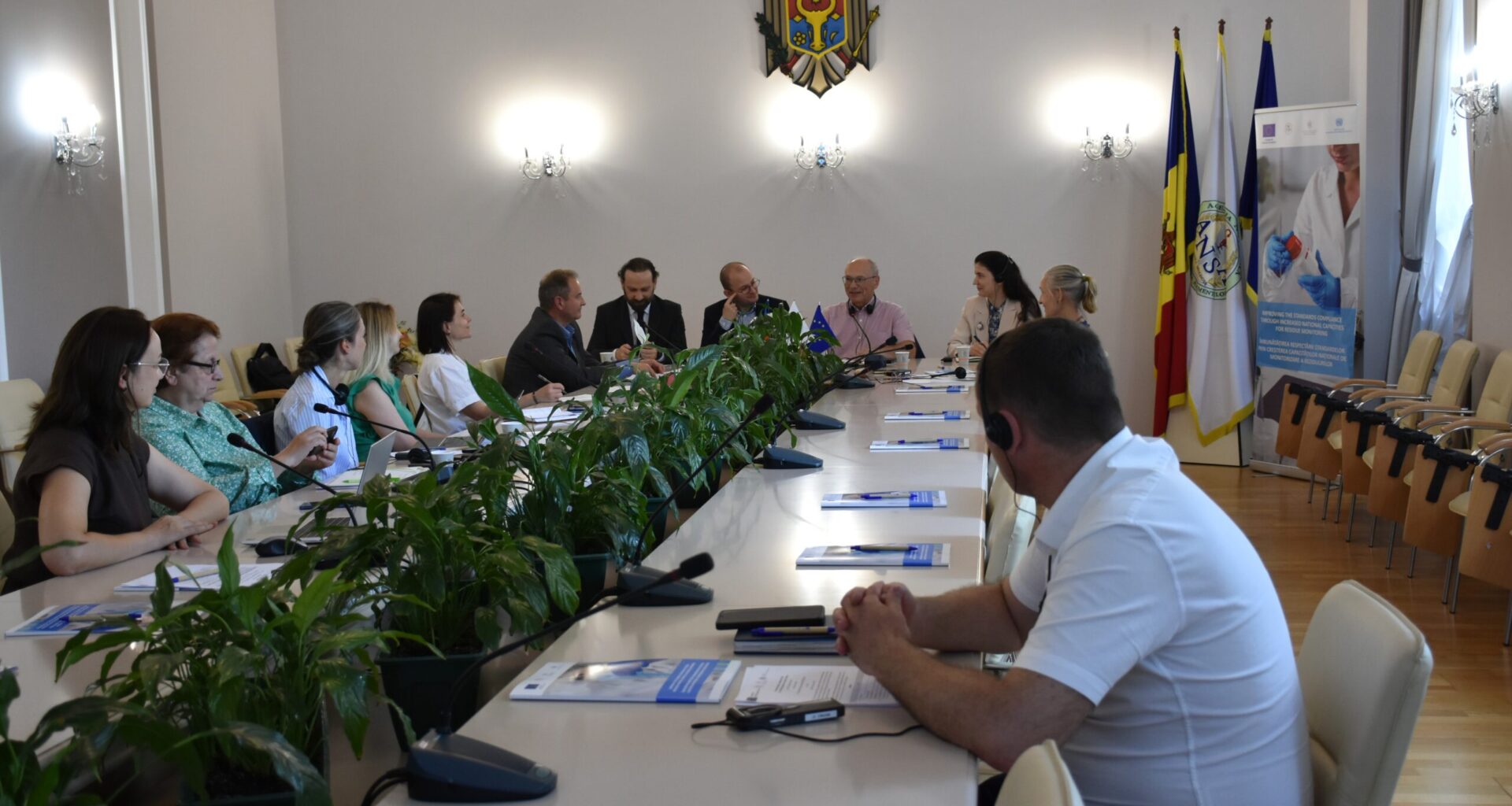Chisinau, 29 July 2025 – The Republic of Moldova is making a significant leap forward in food safety: four new testing methods have been accredited, over 30 experts trained in critical fields such as molecular biology and bacteriology, and nearly 100 veterinarians and inspectors from across the country have been instructed on EU legislation, sampling techniques, and the control of pharmacologically active substances used in veterinary medicine and animal feed.
Progress in laboratory modernization, legislative harmonization, and support for the business environment under an EU-UNIDO project
Laboratory infrastructure development, legislative harmonization, and private sector support are three of the key focus areas where national authorities and international partners are working together to bring Moldova closer to European quality standards. The priorities were reiterated during the fourth meeting of the Steering Committee of the EU–UNIDO project “Improving the Standards Compliance through Increased National Capacities for Residue Monitoring”.
A major milestone has been achieved in reinforcing the national laboratory system. In recent months alone, the National Centre for Animal Health, Plant Health and Food Safety (CNSAPSA) was equipped with technical equipment worth over €167,000. At the same time, more than 30 laboratory professionals were trained in bacteriology, antimicrobial resistance, microbiology, molecular biology, and quality control of feed and animal products.



“We must continue the collaboration with the project implemented by UNIDO and, with the support of the European Union, finalize the strategy for reorganizing and strengthening the laboratory system. We need a functional network that can take on scientific risk assessment and bridge the gap between academia and regulatory authorities,” said Radu Musteata, Director General of the National Food Safety Agency (ANSA).
Other key achievements, highlighted during the fourth meeting of the project include:
4 new testing methods accredited
Comprehensive infrastructure analysis underway covering 30+ laboratories nationwide (public, private, and regional)
Draft Strategic Roadmap for Laboratory System initiated, outlining short-, medium-, and long-term actions for alignment with EU standards.
Aligned Legislation and Better-Prepared Inspectors
On the regulatory front, with the support of international experts, Moldovan agricultural authorities have made tangible progress in transposing EU legislation, particularly in areas such as animal health, official controls, and veterinary medicinal products.
“Thanks to the technical expertise provided through the UNIDO project, we’ve made notable progress in drafting secondary legislation. It’s a clear example of efficient and applicable cooperation in Moldova,” said Albina Mereuta, Head of the Food Safety Directorate at the Ministry of Agriculture and Food Industry (MAIA).
To date, the project has supported MAIA in drafting two essential pieces of legislation: the Law on Official Controls and the Law on Veterinary Medicinal Products. In parallel, 70 ANSA inspectors from regional offices have undergone specialized training, promoting professionalism and harmonized control procedures.

Direct Support for Moldovan Companies
A core component of the intervention targets the private sector’s alignment with EU standards. In May 2025, a national capacity-building and standards implementation programme was launched. As of today, 35 Moldovan companies – producers and processors of meat, dairy, eggs, fish, as well as firms in the field of plant-based and bakery food products – have benefited from training and personalized mentoring for audits in ISO standards, sustainability, and good hygiene practices. To support them, 9 technical guides for compliance and continuous improvement have also been developed.
“The project contributes directly to Moldova’s EU accession path, by aligning national legislation and strengthening the institutional capacities of the country. One other important observation that we have made so far is that indeed the project is acting as a good intergovernmental facilitator, bringing together different ministries and governmental institutions united around mutually interesting and important activities. One other thing that we are glad to mention is that you are directly targeting private sector partners and their capacities to become fully-fledged participants of the EU single market in a joint development effort,” stated Adam Grodzicki, Deputy Head of Cooperation at the EU Delegation to the Republic of Moldova.
Sustainable Interventions with Long-Term Impact
”The United Nations Industrial Development Organization (UNIDO) has decades of experience acquired all over the world in quality infrastructure development and standards compliance. UNIDO always applies a unique and systemic, demand-driven approach in strengthening national capacities in quality infrastructure systems, focusing on private sector and consumer needs which are necessary for countries to create a healthy business environment for trade and competitiveness as well as to enhance national consumer safety and access to safe, healthy and nutritious food”, said Giorgi Todua, Industrial Development Expert, UNIDO.
Since 2023, UNIDO has been implementing the project in partnership with the European Union and the Moldovan government. To date, it has also contributed to the development of National Residue Monitoring Plans and, in collaboration with the World Bank and the AGGRI Project, facilitated access to $5 million in non-reimbursable funding for six local farms.
